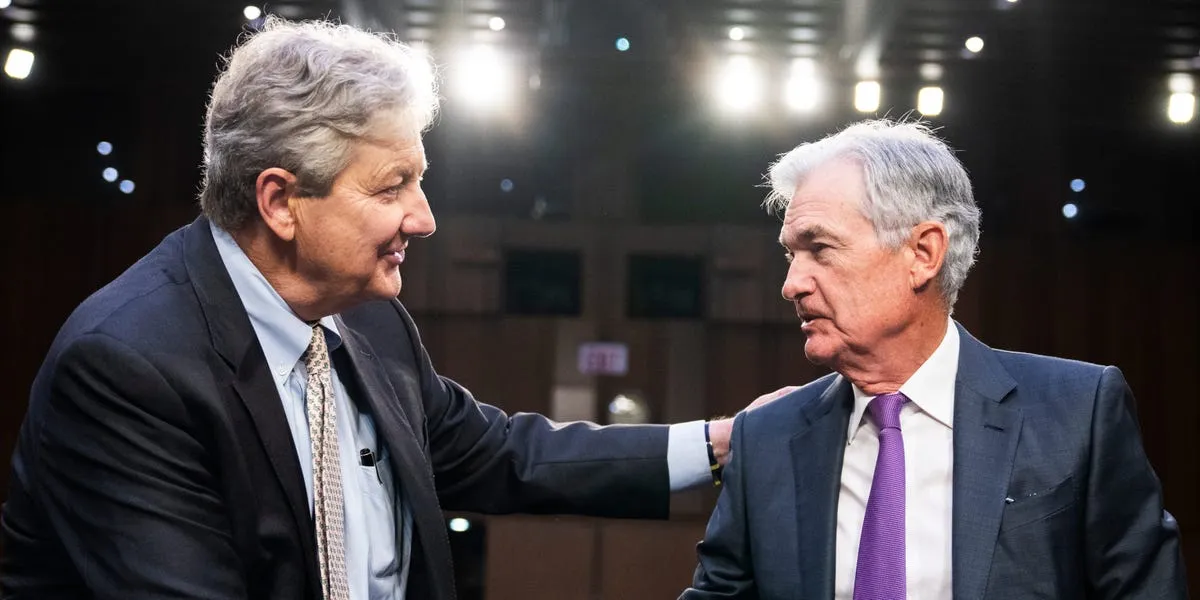
In recent days, former President Donald Trump has significantly escalated his attacks on Federal Reserve Chair Jerome Powell. On Thursday, Trump expressed his dissatisfaction with Powell’s decisions, indicating a growing rift between the White House and the Federal Reserve. The following day, Kevin Hassett, Director of the National Economic Council, mentioned that Trump's team would explore the possibility of removing Powell from his position.
Later that same day, Trump publicly criticized Powell for his reluctance to lower interest rates, a move the president believes is essential for stimulating the economy. However, on Sunday, Republican Senator John Kennedy from Louisiana appeared on NBC's Meet the Press, where he stated his belief that Powell would not be removed from office. "I don't think the president, any president, has the right to remove the Federal Reserve chairman," Kennedy asserted. He emphasized the importance of the Federal Reserve's independence, suggesting that both Trump and Powell should engage in a civil conversation to resolve their differences.
Jerome Powell has previously indicated that he would not resign from his position as chair, even if requested by Trump. Senator Kennedy, a known ally of Trump, expressed his support for Powell, stating, "My experience with Jay Powell is that he's got tiger blood." He commended Powell's commitment to making decisions that he believes are right for the economy, reaffirming that Powell is unlikely to let inflation spiral out of control.
During a speech in Chicago last Wednesday, Powell discussed the implications of Trump’s tariffs, noting that they were much larger than anticipated and could potentially contribute to rising inflation and a slowdown in economic growth. Powell highlighted that the Federal Reserve would adopt a wait-and-see approach regarding interest rates, saying, "For the time being, we are well-positioned to wait for greater clarity before considering any adjustments to our policy stance."
Jerome Powell was nominated to the Federal Reserve's Board of Governors by then-President Barack Obama in 2011. He ascended to the role of chairman in 2018 after being nominated by Trump. In 2021, President Joe Biden renominated Powell for the chair position, which was subsequently approved by the Senate in 2022. Powell’s current term is set to run until May 2026.
Trump's campaign against Powell comes at a time of considerable uncertainty for the U.S. economy. The president's tariff strategy has faced bipartisan criticism, as he has frequently altered his stance on tariffs affecting long-time allies such as Canada and Mexico. Trump has also announced and then postponed increased reciprocal tariffs on various nations globally. He has consistently argued that these tariffs would help reduce the persistent trade deficit and ignite a renaissance in American manufacturing.
As the debate continues, the dynamics between Trump and Powell, along with the Federal Reserve's policies, will play a crucial role in shaping the economic landscape in the coming months.